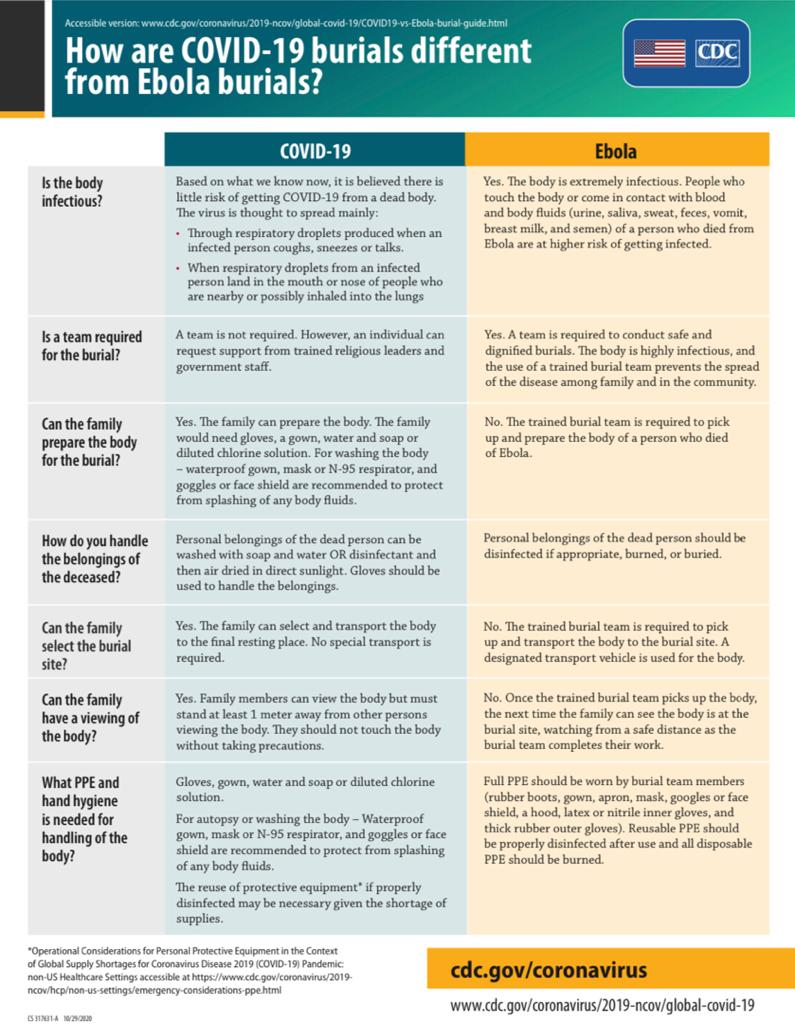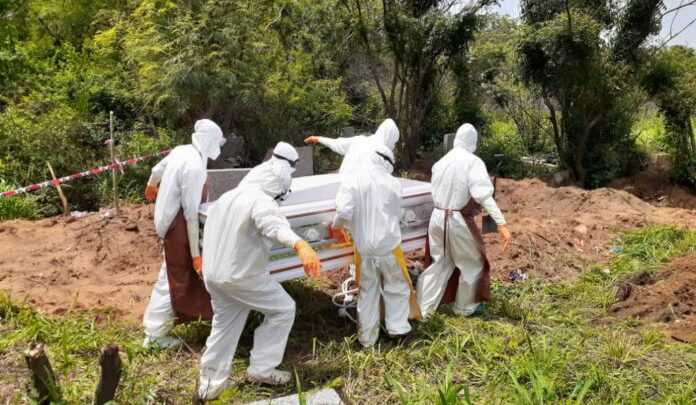The government has been advised to follow scientific evidence and seek views of experts before imposing policy pronouncements that may result in unintended consequences.
This follows recent measures announced by the Ministry of Health and Child Care, regarding the movement of dead bodies for burial in the country.
Among other restrictions, the health ministry said corpses will only be cleared for burial from the funeral parlour or hospital mortuary, and they will be buried in the area where the death occurred.
Read: https://cite.org.zw/covid-19-burials-families-forced-to-abandon-burial-rites/
However, the ministry later made a U-turn and said those who want to transport the body for burial outside the city or town of death, should make sure it is hermetically sealed in a triple coffin before it was collected from funeral parlours or hospital mortuary.
But experts questioned the ministry’s move asking why non-infectious bodies were to be tripled sealed, adding there was also little risk of contracting Covid-19 from a dead body.

According to the American Centre for Disease Control and Prevention (CDC), it is believed there is little risk of catching Covid-19 from a dead body.
“The virus is thought to spread mainly through respiratory droplets when an infected person coughs, sneezes or talks. When respiratory droplets from an infected person land in the mouth or nose of people who are nearby or possibly inhaled into the lungs,” said the CDC.
Unlike Covid-19, when it comes to Ebola, the handing of a corpse is different, as the dead body would be extremely infectious.
“People who touch the body or come in contact with blood and body fluids (urine, saliva , sweat, faeces, vomit, breast milk and semen) of a person who died from Ebola are at higher risk of becoming infected,” said the CDC.

In an interview with CITE, Executive Director, Community Working Group on Health (CWGH) –Zimbabwe, Itai Rusike, a public health activist with almost 20 years experience, said it was important for the Ministry of Health and Child Care to clarify terms of their policy pronouncements.
“Public health approaches should be guided by evidence because there are serious repercussions, as people deal with trauma in different ways. These measures and policies should not be viewed as punitive to people and the Ministry of Health and Child Care must move away from reactive policies,” he said.
For instance, if relatives wanted to take the deceased’s body, it would be costly for them to triple seal the coffin, said Rusike, who noted that due to the economic situation, people were downgrading their funeral policies due to unaffordability.
“Then the government adds more barriers so much that if you want to bury someone in rural areas you must use a sophisticated coffin. With this ailing economy people will end up abiding by the directive to bury the dead where the death occurred,” he said.
The public health activist advised authorities on the importance of consulting wildly and collecting views from key stakeholders such as traditional leaders and churches regarding burials.
“Consulting is better rather than imposing such important decisions because there will be serious repercussions to people who want to bury their dead,” Rusike said.
Rusike noted that Zimbabwean authorities must learn from the British government who had ordered all dead people to be cremated but were met with opposition from the Jewish community who in their beliefs do not cremate and their position was considered.
“When a patient is referred from Gwanda to Mpilo in Bulawayo due to their condition which wants a central hospital support system and die there, does this mean their family who has no links in that city are supposed to bury the dead there?” he questioned.
“I think the new burial measures are precautionary measures to mitigate transfer but equally there is a need to create balance between saving lives and safeguarding the African culture and tradition. Beliefs are important for African people because they want to properly grieve and mourn.
“People must also have a choice in terms of where they want to bury their dead and usually it’s within a community set up because of the existing networks and community support where people come and chip in. Therefore the government should seriously consider its policies.”
The public health activist said “funny enough,” corpses were still coming from outside the country to be buried back home.
“Bodies are coming from the UK and South Africa and they will still continue to come. At the end of the day there should be consistency because lack of it would be viewed as punitive and that is what is worrying us,” Rusike said.

